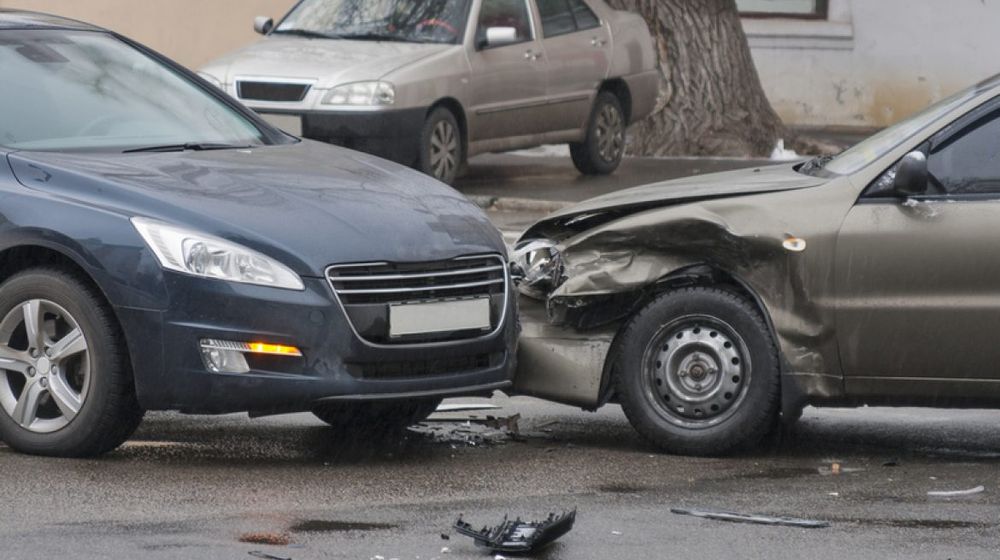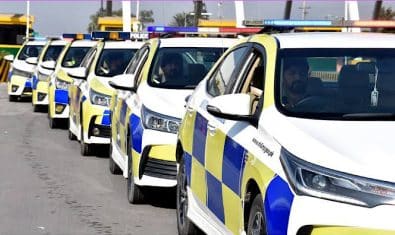The government, on Thursday, launched “National Road Safety Strategy 2018-2030”, envisaging to save more than 6,000 lives by 2030, as road accidents are causing around $9 billion annually to national economy i.e. 3 percent of GDP.
Someone is killed or badly injured every five minutes in a road traffic crash in Pakistan. The Ministry of Communication in collaboration with Asian Development Bank (ADB) and UKaid launched “The Pakistan National Road Safety Strategy 2018-2030”, which is built on the foundation of the first National Road Safety Plan for Motorways and National Highways 2017-2018 and broadens the scope to address all road networks and all road user groups in Pakistan.
It sets out a long-term road safety vision for Pakistan and practical, evidenced-based actions to improve safety on national, provincial, and local roads.
This vision is supported by ambitious road safety performance targets for each of the UN road safety pillar areas: road safety management, safe roads and roadsides, safe speeds, safe vehicles, safe road users and post-crash response.
The Strategy also addresses the growing need for actions to minimize road use. In line with the World Health Organization (WHO) best practice road safety principles, the strategy includes an ambitious target to save more than 6,000 lives by 2030.
This Strategy, and the series of road safety action plans which will be developed to implement it, addresses all roads and all road users, especially vulnerable road users such as motorcyclists, pedestrians, rivers and passengers in three-wheeled vehicles.
Sustainable improvement in road safety requires the government, industry sector, and the people of Pakistan to fundamentally change the way in which we value and approach road safety. While government agencies play the principal role in delivering a safer road transport system, the strategy emphasizes that a collaborative approach is required across all elements of the road transport sector.
According to the strategy, road trauma significantly impacts the national economy. WHO estimates that the cost of road traffic crashes is around 3 percent of GOP in low and middle income (LMIC) countries such as Pakistan.
Pakistan’s projected GOP is $315 billion in 2018, rising to $360 billion by 2020. lf these projections are correct, the loss to the Pakistan economy in 2018 will be around $9 billion, rising to $11 billion in 2020.
This National Road Safety Strategy 2018-2030 (‘Strategy’) delivers a comprehensive, data-based strategy for sustainably improving road safety for all road users, including the vulnerable road user (VRU) group which includes pedestrians, motorcyclists, bicyclists, occupants of three-wheeled non-motorized vehicles, women, children, and older road users.
This includes a review of current road safety practice, comparison of Pakistan’s performance against the international best practice, analysis of available crash and transport related data, data modelling to set targets, and consultation with key stakeholder agencies, including civil society groups.
Recommendations
Addressing on this occasion Minister of State for Communications Murad Saeed said that road safety is a major public health issue in Pakistan. It is estimated that every five minutes someone is killed or badly injured in a road traffic crash in Pakistan. Along with the enormous human suffering, the economic cost is estimated to be 3-5 percent of Pakistan’s GDP. Pakistan’s rapid economic growth and expanding road infrastructure create an opportunity to significantly improve the safety of the road transport system, he added.
Pakistan’s geographical position places it at the heart of regional road transport growth. However, improvements in mobility must not be at the expense of safety. Pakistan’s strong political will to improve the safety and health of its entire people is reflected in its commitment to achieving the Sustainable Development Goals, 2030 and the UN 2030 Global Road Safety Performance Targets.
The minister also hinted at changes in the driving license mechanism, road infrastructure plan and monitoring/checking vehicles condition. The minister said that all provinces would be taken on board to fully implement the plan as it is a national cause to save people lives. He said that the policy targets would be reviewed after every six months to ensure its implementation.
Inspector General National Highways and Motorways Police Allah Dino Khawaja said there are practical challenges faced by the implementing forces. We need to have well-designed road and standard of driving license, said Khawaja, adding that different provinces have different standards for driving license. He further said there is no vehicle fitness system. We need to bring uniform laws to cater the road accident challenges. He further stressed on use of technology, awareness, education, enforcement mechanism as well as standard driving license issuing institutions across the country.

































